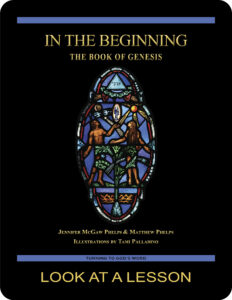Spirit
 Paul relies heavily upon the concept of spirit to explain to the Corinthians how the spirit of God operates. Throughout the First Letter of Paul to the Corinthians 2:10–16 (NABRE), the Greek word used is pneuma, which literally means a “breeze” or “wind,” and from that meaning the word also comes to mean breath. This concept was typical in the ancient languages and the same meaning can be attributed to the Hebrew word ruach and the Latin word spiritus. These words characterize the act of breathing possessed by all living things—they refer to the physical act of drawing breath.
Paul relies heavily upon the concept of spirit to explain to the Corinthians how the spirit of God operates. Throughout the First Letter of Paul to the Corinthians 2:10–16 (NABRE), the Greek word used is pneuma, which literally means a “breeze” or “wind,” and from that meaning the word also comes to mean breath. This concept was typical in the ancient languages and the same meaning can be attributed to the Hebrew word ruach and the Latin word spiritus. These words characterize the act of breathing possessed by all living things—they refer to the physical act of drawing breath.
As important as what these words each mean is what they do not mean. In the ancient languages, spirit or breath as a concept was distinct from the concept of soul or the seat of the intellect. In Greek, the word for soul is psyche. In Latin, it’s anima, and in Hebrew it’s nephesh. All of these words originally had something to do with breath or wind, though there is a clear conceptual distinction between the words meaning soul and those meaning spirit. The words meaning soul refer to a more abstract and less physical notion or breath or life.
With this distinction in mind, we can now take a look at the First Letter of Paul to the Corinthians 2:10–11 (NABRE) in which Paul writes: “For the Spirit scrutinizes everything, even the depths of God. Among human beings, who knows what pertains to a person except the spirit of the person that is within? Similarly, no one knows what pertains to God except the Spirit of God.”
The Greek word in use here, probably somewhat surprisingly, is pneuma. In the passage cited above, Paul seems to be writing about the seat of intellect, and so it’s important to ask why he’s using pneuma rather than psyche. The obvious answer is that he’s not actually writing about the spirit of a human person so much as about the Spirit of God.
The ancients could not conceive of a place other than under water where there was not air, and all air would be the Spirit of God. When we take a breath, a part of that air enters into us and so is diffused throughout our bodies. Paul is using this metaphor for the Spirit of God to describe communion with God for the believer. Connection with God is not an act of the intellect (psyche) but is as easy and omnipresent as drawing a breath (pneuma).
related topics: dove; holy; inspiration; Paraclete; poor in spirit; Trinity; wind & spirit
you also may like our study of the book of Genesis
 The first seven lessons of In the Beginning: The Book of Genesis, a 28-lesson Catholic Bible study with an imprimatur, provide an in-depth look at the very earliest biblical history—including the two accounts of Creation, events surrounding the Fall of Adam and Eve, the relationship between Cain and Abel, and the baptismal foreshadowing present in the account of Noah and the Flood. Remaining lessons look at lives of the patriarchs Abraham, Isaac, Jacob, and Joseph. Click on the book’s cover to view a sample lesson.
The first seven lessons of In the Beginning: The Book of Genesis, a 28-lesson Catholic Bible study with an imprimatur, provide an in-depth look at the very earliest biblical history—including the two accounts of Creation, events surrounding the Fall of Adam and Eve, the relationship between Cain and Abel, and the baptismal foreshadowing present in the account of Noah and the Flood. Remaining lessons look at lives of the patriarchs Abraham, Isaac, Jacob, and Joseph. Click on the book’s cover to view a sample lesson.
 Click on the picture of the statue of Moses with horns (above) to learn more about Lost in Translation. A new entry is archived each Monday. Contact us to receive Lost in Translation by email every week. You may use any of the contact links on our website to ask Matthew a question.
Click on the picture of the statue of Moses with horns (above) to learn more about Lost in Translation. A new entry is archived each Monday. Contact us to receive Lost in Translation by email every week. You may use any of the contact links on our website to ask Matthew a question.
